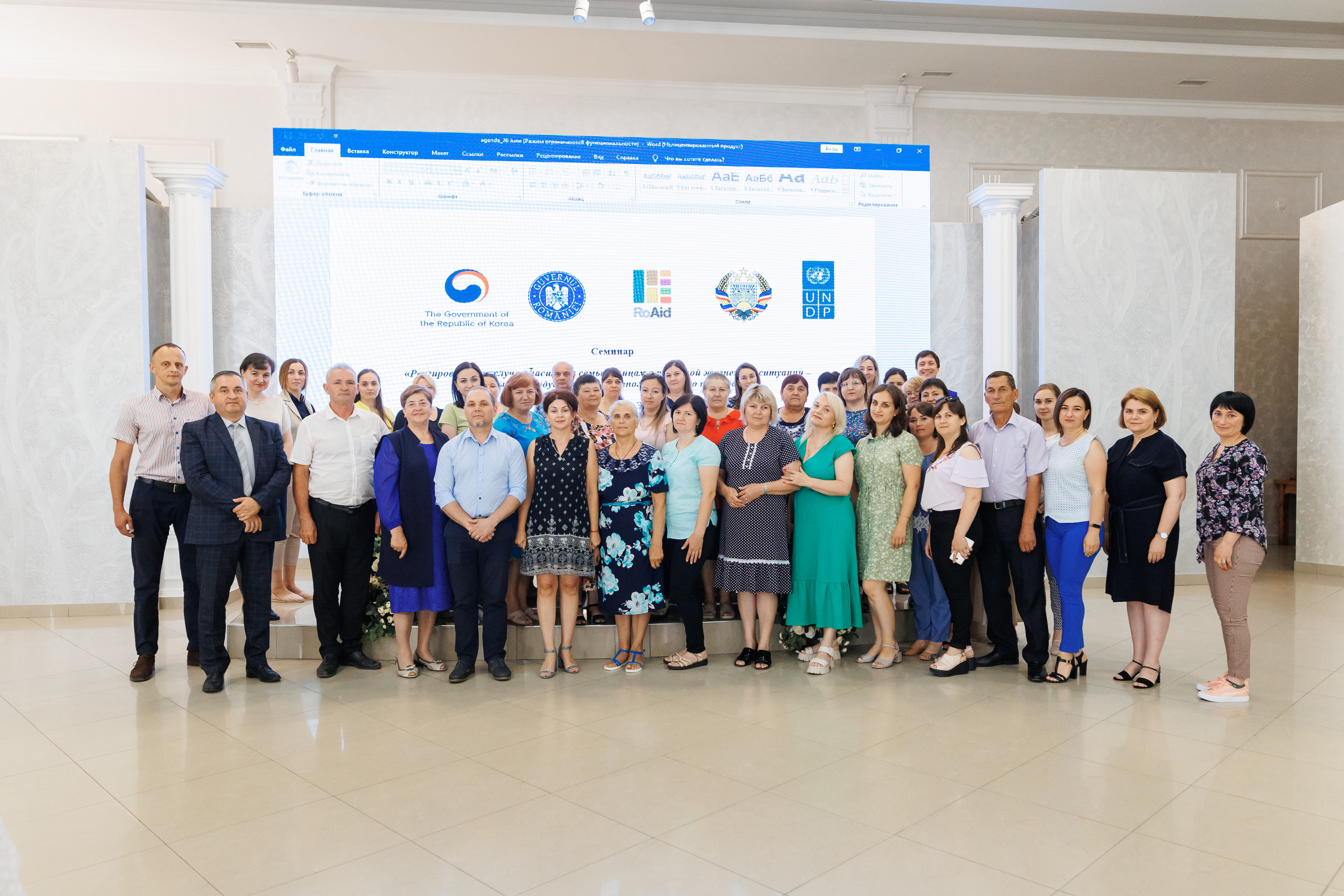Combating violence has become a priority for most localities in Gagauzia region
More than 20 communities in Gagauzia region aim to become free of violence
August 22, 2022

Members of multidisciplinary teams from 21 communities of Gagauzia region
Multidisciplinary teams have been established in 21 villages and towns in Gagauzia region. Their members - employees of public institutions and representatives of CSOs – team up to prevent violence. Recently, social workers and mayors of these communities were trained on how to develop and improve local action plans in the field of preventing violence.
The first multidisciplinary team was established in Chirsova village in 2018, and since then UNDP has contributed to the establishment of these structures in other communities in Gagauzia region. Having a different level of experience, the participants exchanged best practices, the most effective ones to be replicated at the regional level.
Some teams have proposed promoting anti-violence messages through social media. Thus, the mayoralties’ web pages could be used to share information about the available help, but also answers to the most frequent questions asked by women suffering from violence from their husbands or partners. According to specialists, most questions refer to protection measures for victims. By using social networks, the mayoralties aim to inform the population, especially women, about the services provided by the Regional Center for the Rehabilitation of Survivors of Domestic Violence, opened in the region in 2020 by UNDP and the Executive Office of Gagauzia region, with the support of the Republic of Korea. The center provides social, psychological, and legal assistance, as well as support in finding a job.
According to Vitalie Frecauteanu, project coordinator at PNUD Moldova, since 2018, when the project started – people’s opinions changed a lot, but also the response of public authorities to cases of violence.
"We have worked on combating stereotypes, which prevent specialists from effectively tackling the problem. Now everyone understands that violence is a serious violation of women's rights that shall not be accepted and allowed. After three years, we have made progress from the stage of correct understanding of the phenomenon, that it is not something normal, to the stage that brings tangible changes in all communities. We observe now a proactive approach in the region," says Vitalie Frecauteanu.
"It's important that every woman asks for help and we have zero tolerance for gender-based violence"
Now, eight multidisciplinary teams, set following decision of mayors of villages, are operational in Ceadir-Lunga district.
Natalia Capunji, chief specialist on social issues and child protection, Ceadir-Lunga municipality, believes that all those responsible at the local level should be involved in preventing of violence. "In high schools and gymnasiums, children and teachers should be informed. In kindergartens, information may be provided during meetings with parents. It is important that psychologists are also involved in these activities. Likewise, social workers and family doctors should be engaged, so as to be informed on how to intervene when they suspect a case of violence. Another problem that needs to be solved is the closer monitoring of aggressors, but also their rehabilitation," says the specialist.
Ecaterina Hadji, a social worker in the village of Dezghinja, notes that some women are reluctant to ask for help: "There are still women who prefer not to talk about violence, and cases only come to light when they are reported by members of the multidisciplinary team. Besides women, the phenomenon of violence also affects children to a great extent. Through the action plan at the local level, we aim to encourage the villagers to report all cases of violence they witness," says Ecaterina Hadji.
This opinion is also shared by Ecaterina Cîrma, social worker in Avdarma: "It is important that every woman asks for help and that we have zero tolerance towards gender-based violence. We, the specialists at the local level, should know how to react, how to solve and prevent these cases. We will develop an activity plan and we will try to involve in this process as many people as possible."
Ten multidisciplinary teams were established in Gagauzia region in 2021, based on the experience of the pilot project implemented in Chirsova. Another ten teams were formed this year with the support of the "Combating violence against women in Gagauzia, Republic of Moldova" project, implemented by UNDP with the support of the Romanian Government, through RoAid - the Romanian Agency for International Development Cooperation.

 Locations
Locations